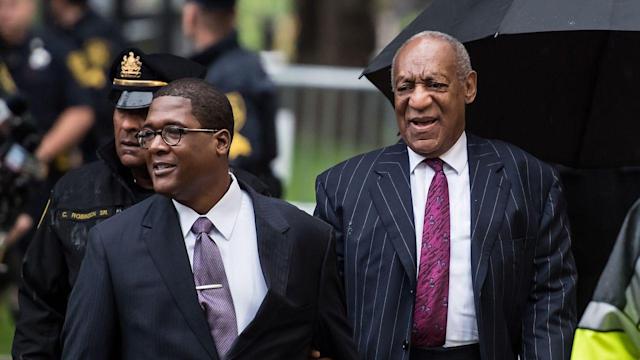
Prosecutors Ask Supreme Court to Review Decision to Overturn Bill Cosby’s Conviction
Prosecutors in Pennsylvania asked the U.S. Supreme Court to review the decision that overturned Bill Cosby’s indecent assault conviction, arguing in a petition that Cosby was incorrectly shielded from prosecution.
The Montgomery County District Attorney’s Office said in a statement Monday that Cosby, 84, shouldn’t have been granted immunity because a media statement issued by a previous district attorney said sexual assault charges wouldn’t be filed.
“Where a prosecutor publicly announces that he will not file criminal charges based on lack of evidence, does the Due Process Clause of the Fourteenth Amendment transform that announcement into a binding promise that no charges will ever be filed, a promise that the target may rely on as if it were a grant of immunity?” the statement asked.
The Pennsylvania Supreme Court in June overturned Cosby’s indecent assault conviction and ordered his release from prison after it found that he was denied protection against self-incrimination.
The court said a prosecutor’s decision not to charge Cosby in an earlier case opened the door for him to speak freely in a lawsuit against him, thinking he wouldn’t incriminate himself. A second prosecutor later used the lawsuit testimony in a criminal trial, and it was key in his conviction years later.
“Petitioning to ask the High Court for review was the right to do because of the precedent set in this case by the majority opinion of Pennsylvania Supreme Court that prosecutors’ statements in press releases now seemingly create immunity,” Montgomery County District Attorney Kevin Steele said in a statement.
“This decision as it stands will have far-reaching negative consequences beyond Montgomery County and Pennsylvania,” he said. “The U.S. Supreme Court can right what we believe is a grievous wrong.”
Steele was referring to media statements from Bruce Castor, the Montgomery district attorney at the time, who declined to press charges, “thereby allowing Cosby to be forced to testify in a subsequent civil action,” according to the court.
“Unable to invoke any right not to testify in the civil proceedings, Cosby relied upon the district attorney’s declination and proceeded to provide four sworn depositions. During those depositions, Cosby made several incriminating statements,” Justice David Wecht wrote in a 79-page opinion, joined by Justices Debra Todd, Christine Donohue, and Sallie Updyke Mundy.

